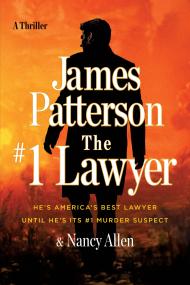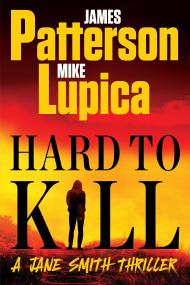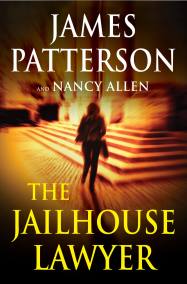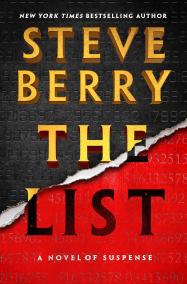By clicking “Accept,” you agree to the use of cookies and similar technologies on your device as set forth in our Cookie Policy and our Privacy Policy. Please note that certain cookies are essential for this website to function properly and do not require user consent to be deployed.
The Hamptons Lawyer
A Jane Smith Thriller
Contributors
By Mike Lupica
Read by Eva Kaminsky
Formats and Prices
- On Sale
- Jul 21, 2025
- Publisher
- Hachette Audio
- ISBN-13
- 9781668648292
Price
$27.99Format
Format:
- Audiobook Download (Unabridged) $27.99
- ebook $14.99 $19.99 CAD
- Hardcover $30.00 $39.00 CAD
- Trade Paperback $19.99 $25.99 CAD
- Trade Paperback (Large Print) $32.00 $42.00 CAD
Buy from Other Retailers:
Instant #1 New York Times bestseller!
“Great book. Great series. Best yet” (Morning Joe). Undefeated criminal defense attorney Jane Smith—known as the Hamptons Lawyer—never fails to make her case.
The Hamptons on Long Island is known for its beautiful beaches, its luxury lifestyle—and its exclusive legal advice.
When Jane Smith takes on a famous celebrity client, she’s armed and ready: with brilliant arguments, hard evidence—and two Glocks.
Yet she’s chased down, shot at, and risks contempt of court. That’s when mounting a legal defense turns into self-defense.
Knowing every day in court could be her last, she’s a survivor. For now.
Genre:
Series:
-
"Unique and highly suspenseful... The Hamptons Lawyer is a great beach read that is unpredictable and hard to put down."Bookreporter.com
What's Inside
Chapter One
Chapter Two
Chapter Three
Chapter Four
•••
ONE
JIMMY CUNNIFF AND I are inside the shooting range at the Maidstone Gun Club a little after seven in the morning. For a change, we’re shooting at targets and not at people. Even better, the targets aren’t shooting back.
As ex‑NYPD cops, Jimmy and I have long competed at shooting ranges. With rare exceptions, we’ve been better shots than the bad guys we’ve encountered along the way.
Jimmy still feels the need to remind me that he thinks he’s better than I am. I now feel almost obligated to remind him that in my humble opinion, nobody’s better than I am.
“We’re still just talking about guns here, right?” he asks.
“Among other things,” I say.
I smile sweetly at my partner. And he’s not that kind of partner, not now and not ever. I’m a criminal defense attorney, he’s my investigator and indispensable right‑hand man, in addition to being the best friend I’ve ever had, or maybe anybody has ever had.
Like me, he’s also a survivor. At least for now.
It wasn’t so terribly long ago that we both survived a late‑night shootout that turned the Walking Dunes of Montauk, out near land’s end on eastern Long Island, into the OK Corral. One of the shooters somehow managed to get away. The other wasn’t quite as lucky.
Jimmy and I aren’t here at Maidstone Gun getting ready for the next time. Neither one of us wants a next time, even though way too many people have been shooting — at both of us — since I began defending a local real estate guy named Rob Jacobson accused of committing his first triple homicide.
Yeah, that’s right. His first.
Of two.
If that sounds like some kind of record, it probably is. People keep telling me I sure can pick ’em. But then no one has ever confused my line of work, or Jimmy’s, with church.
The gun club is in Wainscott, about twenty minutes west of where I live. The place has been shuttered for a couple of years because of a beef with the town fathers, mostly from neighbors who got tired of the soundtrack of their lives sounding way too much like an action movie. Now the rifle range and the clubhouse, with its covered porch and big‑game trophies inside, looks like some kind of deserted movie set.
Of course Jimmy, who seems to know practically everybody in this part of Long Island, still has a key and the code that got us through the electronic gate on Northwest Harbor Road and past the sign that actually reads: ABSOLUTELY NO ARMOR‑PIERCING AMMUNITION. Words to live by, as far as we’re concerned.
But I do dearly hate to lose, almost as much as I hate Jimmy’s Yankees, being a Mets girl and all. I hate to lose at anything, one of the reasons why they call me Jane Effing Smith.
One of many.
As we get ready to begin today’s competition, I am singing the old Aerosmith song “Janie’s Got a Gun.”
“Janie’s got a gun, her whole world’s come undone…”
“Well, maybe not her whole world,” Jimmy adds. “Just this little corner of it.”
“You continue to forget something, Cunniff,” I say. “I never lose.”
“Well, not on the big things.”
“You mean like cancer?”
“Yeah, that’s exactly what I mean.”
“To be determined,” I tell him.
“Shut up and shoot,” he says.
“Is that your way of telling me to stop singing?”
“Not unless you want me to shoot myself,” Jimmy Cunniff says.
We’re each using a state‑of‑the‑art gun, a Sig Sauer P320 XCompact. And because this is part of an ongoing competition between two ex‑NYPD cops, we’re using a clock. Cops use clocks. Ours beeps when we start the timer, telling Jimmy or me it’s time to draw our weapon, in what would theoretically be a shootout on the street. Or in an alley. Or even on the Walking Dunes of Montauk.
The clock doesn’t stop until after the last shot has been fired.
Jimmy has already set up a rack with a half‑dozen steel target plates — six inches in diameter, three‑eighths of an inch thick — that he’s spray‑painted black to more easily determine the location of the hit. The steel is sturdy enough to occasionally withstand a bullet strike without tipping over.
When I leave a target standing, Jimmy usually tells me I shoot like a girl.
“Yeah,” I say. “Calamity Jane.”
It was what my father the ex‑Marine used to call me when he started taking me to the range. I’d say it was right after I stopped playing with dolls. But the only way I would have ever played with dolls is if there had been an Officer Barbie. And probably not even then.
As the leadoff shooter, I step back ten yards from the plates — it doesn’t seem like much, but it’s the proper distance to test accuracy with even a fancy handgun — and wait for Jimmy to start the clock.
In civilian shooting competitions, missed shots are awarded zero points. Cops who miss lose points, then get smack‑talked all the way to the parking lot. Or back to the squad room in the old days.
“When cops miss what they’re aiming at,” Jimmy says as he sets the timer, “they might hit grandma by mistake.”
“Or maybe, say, a client?” I ask him, grinning.
“Don’t give me any ideas about that bottom‑feeder we’re defending,” he says, then asks if I’m ready.
I take a big deep breath, let the air out slowly, trying to get my adrenaline under control.
“Armed and ready.”
“At least you didn’t give me that cheesy line about being born ready.”
“No effing way,” I say.
I hear the beep and raise the P320 and start firing away. Six for six.
They all go down.
But even after the last one is down, I want to keep going, reload until I’m out of ammunition and my hand can no longer squeeze the trigger.
I want everything in my life to be this easy. Aim and fire.
I want to stop feeling the way I’ve felt for the past eight months, that I’m the one with the target on my back.
•••
TWO
JIMMY MATCHES ME WHEN it’s his turn, shot for shot, six for six. We’re just getting started. I finally edge ahead of him in the fifth round when he misses the last target.
“Oops,” I say. “Down goes grandma.” “She had a good life,” Jimmy says.
He’s smiling. So am I.
“You can’t even beat a cancer patient,” I say. “Sad.”
That wipes the smile off his face, but then this particular subject always does.
“You know I don’t like playing that game,” he says. “Trust me,” I say. “Neither do I.”
Truth is, I had already been having a day, and it isn’t even eight o’clock in the morning. Sometimes I get so sick between rounds of chemo that I’m up most of the night. Sometime around four, I drop off to sleep for a couple of hours, only to be awakened by my alarm at six.
Never mind that I almost called Jimmy to cancel. I arrived at the range, trying to act more energetic than the creature that inspired my mother’s childhood nickname for me: Hummingbird. He worries enough about me already, telling me every chance he gets that I’m going to get better, and that even if I die, it will be over his own dead body.
He stops re-racking the targets and gives me a long look, as if he’s getting ready to interview a perp. “Tell me something straight, even if you are a lawyer,” he says, as if reading my mind, something he does with annoying frequency. “You sure you got another trial in you?”
“No doubt.”
“No bull is what I was hoping for,” he says.
“You should know better than anyone that the code never changes with me,” I say. “Live to work, work to live.”
I don’t add, or die trying. Frankly, I don’t like playing that game, either.
He wins a round, the sixth, when I finally miss. But I come back and beat him one last time, because we both know I’m not leaving on a loss.
“Rematch?” Jimmy asks.
“As much as I would like to beat your butt all the livelong day, I’ve got to get to the courthouse to meet with my new jury consultant, remember?”
Across an undefeated career in court, I’ve hardly ever used jury consultants. Certainly not for Rob Jacobson’s first trial, where he was acquitted.
Now he’s about to stand trial in Nassau County, next one over from Suffolk. Different county, but same charge: the shooting deaths of an entire family — father, teenage daughter, and her mother, whom Jacobson had known back in high school.
This time around, the evidence against him is even worse. Katherine Welsh, the new Nassau County district attorney, is leading the prosecution. Just two days ago, on the eve of jury selection, we were informed of a piece of evidence that had magically, like a baby being left on the estimable Ms. Welsh’s doorstep, shown up at her office: a time‑stamped photograph of our client leaving the victims’ house the night of the murders.
I pleaded with Judge Michael Horton for a continuance, to allow me and Jimmy time to investigate; bless his heart, he gave us two weeks. That same day, I broke down and hired a jury consultant. Just being realistic, this might turn out to be the last big case of my career and to win it, I was going to need all the help I could get.
“So you’re still going to meet with Queen Elizabeth?” Jimmy says.
It’s what he’s taken to calling the consultant, a woman named Norma Banks. Norma admits to being eighty‑three, but I think she’s dropped a few years the way people drop excess pounds.
“Come on, I know she’s old,” I tell Jimmy. “But she’s not dead.”
“Yet,” he says. “I was you, I’d drive fast to Mineola, just to be on the safe side.”
•••
THREE
IT’S A HIKE TO the courthouse, just under eighty miles. I once mentioned to Jimmy that a trip across Long Island should be measured not in miles, but dog years.
“Don’t ever say that in front of Rip,” Jimmy said, “on account of how far he is past his sell‑by date.”
Rip is my dog. I really did think he was a goner when I took him in as a stray and named him “R.I.P.” Now, because of tender loving care from the man of my dreams — Dr. Ben Kalinsky, who happens to be the top veterinarian on the South Fork — Rip shows signs of outliving us all.
It’s actually kind of funny. Eight months after being told I had a year to live, starting another round of chemo so soon before the start of my next trial, gallows humor has pretty much become my default position.
I promised Norma Banks I would meet her at the Supreme Court building, Nassau County, at eleven o’clock, traffic on the Long Island Expressway and Northern State permitting. She’s taking the Long Island Rail Road from New York Penn Station. Her apartment in the West Village is not far from mine, though when she moved in Nixon was president. Or maybe FDR.
The SiriusXM channel devoted to Billy Joel, a good Long Island boy, is now back by popular demand, but I switch to Doctor Radio, where I keep hoping to hear news of a cure for my cancer, neck and head.
The dream of scooping my oncologist isn’t feeling so realistic today, so I tune out the doctors and go back to rock ’n’ roll. As shitty as I feel, I’m ready to put this last round of chemo in the rearview mirror, as if I were recovering from a bad breakup, or a midlife crisis. I need my focus to be squarely on the upcoming trial.
Judge Michael Horton — I keep wanting to call him Jordan, because he reminds me of Michael Jordan, and is almost as tall, having been a shooting guard in college himself — knows what I’m dealing with, no reason to keep it a secret from him.
He hasn’t told the media that my “situation” was another factor in his decision to delay the trial. And District Attorney Katherine Welsh didn’t contest the continuance, to her credit. I’m more than happy to accept their help on this particular matter. Just not their sympathy, theirs or anybody else’s.
It’s worth mentioning that Katherine, who’s both Harvard undergrad and Law, is younger than I am, taller, prettier, and, as far as I know, healthy as a horse.
That bitch.
Only now jury selection is staring me in the face, even as I’m pulling out of a brutal round of chemo — something else I think should be measured in dog years, mostly because it makes me sick as one.
Am I going to be ready to start picking a jury? Armed and ready.
I’m getting off the Northern State and onto the Meadowbrook when I do decide to tune in to Doctor Radio. Somehow, though, I hit the wrong button and land on a talk show.
And immediately wish I hadn’t.
Before I can switch away from it, I hear the voice of someone who’s clearly the host saying, “Rob Jacobson, can that really be you on our caller line?”
Please don’t be him.
But the next voice I hear does belong to my client. Shit shit shit. On a stick.
“The man, the legend,” Jacobson says. “Accept no substitutes, Paul.”
“Thanks for reaching out,” the host says. “So what’s on your mind today?”
“Obviously nothing is on his freaking mind,” I say out loud in the car.
Then I’m pounding my left hand on the horn, causing the car next to me to swerve and nearly sideswipe me.
“Well,” Jacobson says, “we could talk about the homeless crisis in New York City, or if this is finally the year for the Knicks, but I thought you might want to talk about my upcoming trial.”
Behind the wheel, I am shaking my head and still talking to myself.
“I know you can’t hear me, Rob,” I say. “But you really are a raging fucking asshole.”
For the next ten minutes, ten minutes that seem to last longer than both my marriages combined, my client proceeds to do something I specifically ordered him not to do:
Talk about the trial.
Not to the media, not to the members of his family still speaking to him, not to any friends he might have left, not to any of his many girls on the side. Not even to the DoorDash guy bringing him his food in the house he’s been renting a couple of miles from mine in Amagansett, while he’s under house arrest.
Yet here he is, talking to Paul, whoever the hell Paul is.
Proclaiming his innocence. Telling the listening audience that there’s even less of a case against him this time than there was the last time, when in fact the opposite is true. Even saying “Bring it on” when he references Katherine Welsh, the woman who is trying to put him away for life.
“I am so anxious to get my day in court,” he says, “I wish it were today.”
He pauses, then adds, “What can I tell you, Paul? The witch hunt against me continues. If I didn’t know any better, I’d start to think I was a politician.”
Somehow my client saves the best for last, after reminding the host that he’s once again being defended by the great Jane Smith, whom he calls “The Hamptons Lawyer” and describes as the “undefeated heavyweight champion of the world.”
“And let me make it clear that I’m not really talking about her weight,” he says. I hear him chuckle. But then he’s always cracking himself up, even when under indictment. “If you happen to be listening, Janie,” he says. “Love you, babe.”
Babe.
I’m banging on the horn again then. This time the driver of the car next to me, a guy, turns and gives me the finger.
I give it right back.
He’ll never know it isn’t directed at him, or that when I scream out “Asshole!” this time, that isn’t directed at him, either.
I drive faster.
•••
Chapter Four
THE COURTHOUSE HAS OFFERED me the use of an empty conference room for a couple of hours. But I see Norma Banks waiting on a park bench, smoking away.
I cross the street to the small park where she’s sitting, looking trim and fit for someone her age, sucking on what my father used to call a heater.
“The little snots wouldn’t let me smoke inside the building,” she says as her form of greeting.
“The nerve.”
I sit, trying to position myself upwind of her on the small bench. She might be a couple of inches over five feet tall, soft white hair that looks as if it sprouted from a cotton tree, accentuated by a pink sweater and blue jeans and running shoes colored both pink and blue.
She knows about my illness — and about my ongoing hope of being a permanent survivor of it. But I have this feeling that if I ask her to stop puffing away, she’ll tell me it’s a little late for me to be clutching my pearls over secondhand smoke.
Norma Banks just smiles, mostly with eyes the color of the sky.
“Don’t tell me. You quit smoking a long time ago.”
“I was one of those naïve people who didn’t write off the surgeon general as being an alarmist,” I say.
“Your loss.”
But I smile back at her.
“By the way,” I say. “Thanks for agreeing to work with me.”
“About time you called me,” Norma Banks says. “I was wondering when you were going to wake the fuck up.”
I instantly experience her well‑known ability to read jurors even after they’ve been selected — not using technology, only those blue eyes and her fierce intelligence and her instincts.
Neither her age nor her granny looks, however, alter the fact that Norma Banks was — and is — one of the most prominent jury consultants in the country. She’s worked with everybody from New York City mob lawyers to big‑ticket show‑business attorneys in Hollywood. Every time there is a big trial, she hits the talk‑show circuit, though after dropping a couple of f‑bombs on Court TV, she’s learned to watch her language.
Having turned down the chance to work with O. J. Simpson’s Dream Team, she memorably commented on‑air to CNN: “If the gloves don’t fit you must acquit my ass.”
Katherine Welsh has enough forensics to make them party favors. She has a murder weapon with Rob Jacobson’s prints everywhere except inside the gun barrel. And now — Jimmy Cunniff said this was piling on — she has the photograph of him leaving the house that night.
My client continues to say it was all a setup. As you can imagine, I get a lot of that in my line of work. But he’s not the reason I’m skeptical about the State’s case against Rob Jacobson. The reason I’m skeptical goes back to something my father told me one time.
“You want to know the only sure thing in this world?” he said. “That there are no sure things.”
“You know you got lucky with this guy the first time around,” Norma Banks tells me now.
She reaches into the ancient leather bag next to her, grabs a red‑and‑white Marlboro box. It was my father’s brand, too. He was another one who thought that warning on the side of the boxes was for suckers until he dropped dead of a heart attack on a barroom floor.
She lights another cigarette and inhales deeply and then sighs as if she might have briefly glimpsed God.
“With all due respect,” I say to her, “I like to think I make my own luck.”
“That’s a load of bull and you know it,” she says. I am smiling again. I can’t help myself.
“Are you under the impression that all of my previous cases somehow won themselves?” I ask her.
“And are you under the impression that you’ve been involved in more murder cases than I have?”
She blows some smoke in my direction. I move my head to the side to avoid it the way you’d slip a punch. At least she’s blowing some kind of smoke at me.
“I know you think you’re one tough mother,” she says. “But it’s my job to read people. And what I’m reading with you is that you’re scared right out of your designer jeans.”
“They’re actually Levi’s,” I say. “But I see your larger point.”
In the still air, she leans her head back and blows a perfect smoke ring.
“So we’re clear?” Norma Banks says. “I think your client is guilty as balls.”
The twinkle in her eyes makes her look much younger than I know she is.
“Is that going to be a problem for you?”
“If it’s not for you, it’s not for me,” she says. “Now let’s both of us stop screwing around here and get to work.”
We’re walking across the street to the courthouse when Jimmy Cunniff calls and without preamble, because there rarely is an ex‑cop like him, reports facts he thinks worthy of landmark status. Rob Jacobson is at the family town house in Manhattan, the place where his father and teenage mistress were shot to death when Jacobson was in high school.
“That’s impossible,” I say. “He’s wearing a goddamn electronic monitoring device.”
“Wore it all the way back to daddy’s house, apparently.” “What can we do about that, unless they’re already on
their way to pick him up?”
“What I’m going to do is drive to the city and then drag him back out here,” Jimmy says. “And not by his ankle, in case you were wondering.”
I end the call, for the second time today feeling the urge to kill my own client.
“Don’t tell me,” Norma Banks says, as almost like a condemned woman, she finishes off one last Marlboro. “Your client did something stupid.”
“Guilty,” I say.






